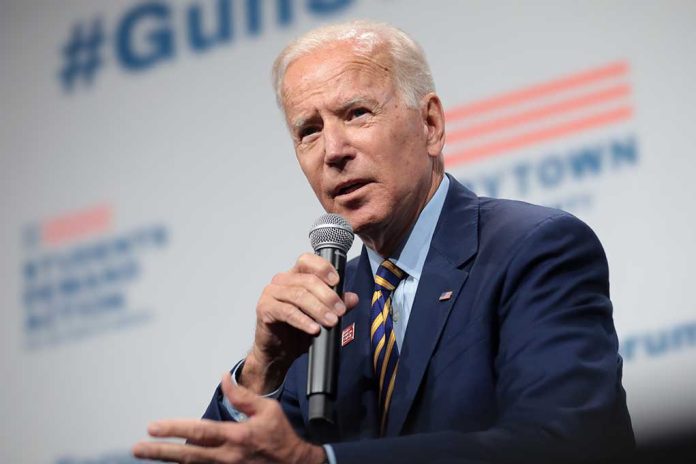
PBS News Hour’s coverage of President Biden’s commutation of 37 death sentences has sparked a debate over its perceived bias.
At a Glance
- President Biden commuted 37 of 40 federal death row inmates’ sentences.
- PBS News Hour’s coverage focused on anti-death penalty proponents.
- Critics argue PBS neglected the crime severity and voices of victims’ families.
- This is part of Biden’s broader clemency efforts affecting 1,500 individuals.
Biden’s Commutation Decision
President Joe Biden commuted the sentences of 37 federal death row inmates, replacing death penalties with life imprisonment. This action marks the most significant mass clemency move against capital punishment since the Lincoln administration. Famous figures like Dylann Roof, Dzhokhar Tsarnaev, and Robert Bowers remained excluded from this clemency and continue to face execution. Biden’s decision aligns with his administration’s moratorium on federal executions, except in terrorism and hate-related cases.
These commutations coincide with Biden’s broader effort granting clemency to 1,500 individuals and pardoning 39 for nonviolent crimes involving disparities, especially in drug offenses. As Biden stated, “America was built on the promise of possibility and second chances.” He highlighted the need to address racial biases and the fairness of sentences connected to these cases.
PBS’s Coverage and Criticism
PBS News Hour’s segment quite visibly leaned into perspectives solely advocating against the death penalty, prominently featuring Robin Maher and discussions on systemic racism. Meanwhile, the other critical facets of the cases, such as the seriousness of the crimes and the impact on victims’ families, were conspicuously underexplored. This omission of counter-narratives has become a focal point of critique, portraying PBS as presenting a one-sided narrative.
Some media analysts found fault with PBS’s failure to balance their reportage by exploring the ramifications this decision could carry for the justice system. They assert that such coverage should equally acknowledge victims and the broader societal implications, not predominantly focus on ideological stances.
Public and Political Repercussions
The decision to commute these sentences has created political ripples, particularly among proponents of capital punishment. Robin Maher described this move as “historic,” yet the segment did not engage those who took an opposing stance. Biden’s critics argue that his evolving view against the death penalty, influenced by Trump’s execution spree, and the shift in stance could resume national debates over the death penalty’s future under different administrations.
“Make no mistake: I condemn these murderers, grieve for the victims of their despicable acts, and ache for all the families who have suffered unimaginable and irreparable loss. But guided by my conscience and my experience as a public defender…I am more convinced than ever that we must stop the use of the death penalty at the federal level,” Biden said.
Robin Maher notes Biden’s shift against capital punishment was catalyzed during the 2020 campaign. Meanwhile, supporters like Martin Luther King III praised the move as a compassionate step toward fairness in federal sentencing. Yet, the conversation remains polarized with numerous voices expressing discontentment within the capital punishment debate.
PBS Openly Embraces Biden's Controversial Clemency for Death Row Inmateshttps://t.co/Blt6Up9ZDU
— MRC NewsBusters (@newsbusters) December 26, 2024
Conclusion
Biden’s clemency decision, covered broadly by PBS News Hour, raises questions about media representation and journalistic balance. Staying true to his evolving perspectives on the death penalty, the president’s decision has echoed across a divided public landscape. This story continues to unfold, potentially shaping discourses on justice and media ethics in significant ways.
Onlookers continue to scrutinize how clemency will impact future justice cases, as disparate views vie for dominance in the realm of public opinion.





